
Levithegrapher, born Oluka Levi documents humans, places and feelings. He has prowled the streets of Lagos over the past four years, camera in hand waiting for nothing to happen. It is this ‘nothing’ that serves as the basis of street photography as an artform. Using pictures to draw out the poetry that lies within seemingly mundane life. A man might push his waste cart along the street as he has always done for two, three years and Levi’s decision to capture that action will breed newer interpretations and emphasis on his life and larger realities that surround or influence it. Levithegrapher’s decision to be the photographer of those who are too occupied by life’s challenges is a unique one. The Blotted attempts to find out why in an interview.
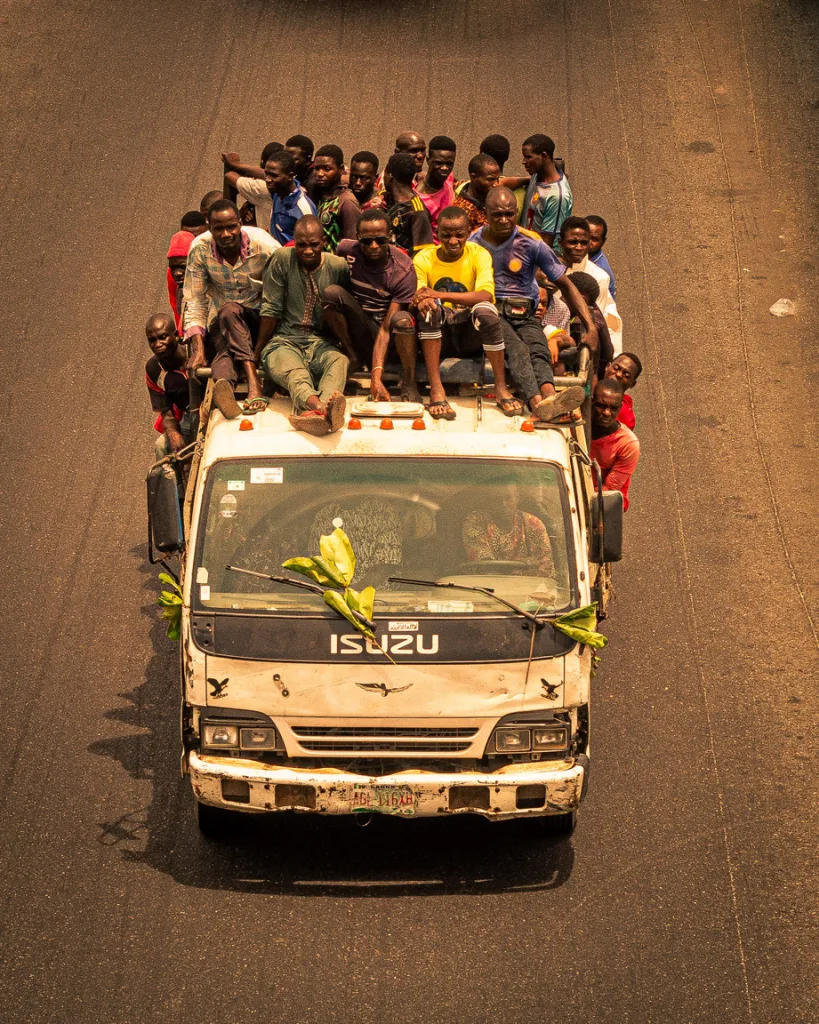
Levithegrapher, City of Dreamers
How did it all begin? How did you transition from being Oluka Levi to Levithegrapher, the street photographer?
Levi: It started in 2019. I had a couple of friends in Church and we used to anticipate taking pictures after Sunday service. They loved my pictures because I seemed to have an eye for composition and that really made me feel good. After this, I tried to take photography seriously, however, I was limited because I didn’t have a camera, I could only use my phone. I found out that it was hard to organize shoots and get models to agree when they realized that my equipment of choice was my phone, so I decided to go into the streets and take pictures. Eventually, I got a camera, and it was easy to transition from phone photography to using a camera and that was how I started.
What kind of family did you come from? Are they inclined to the creatives?
Levi: My family has not really been in support of photography. They didn’t really understand, so during the early stage, it was hard. I could remember trying to force them to get me a camera. I remember when I gained admission, they called a meeting and asked what i wanted to get, I asked for a camera, but they were quite dismissive.
Seeing as you have grown in your craft and you are now a man of your own. Have they come around to accept your path?
Levi: No, they haven’t. It is not something I like to discuss very much.
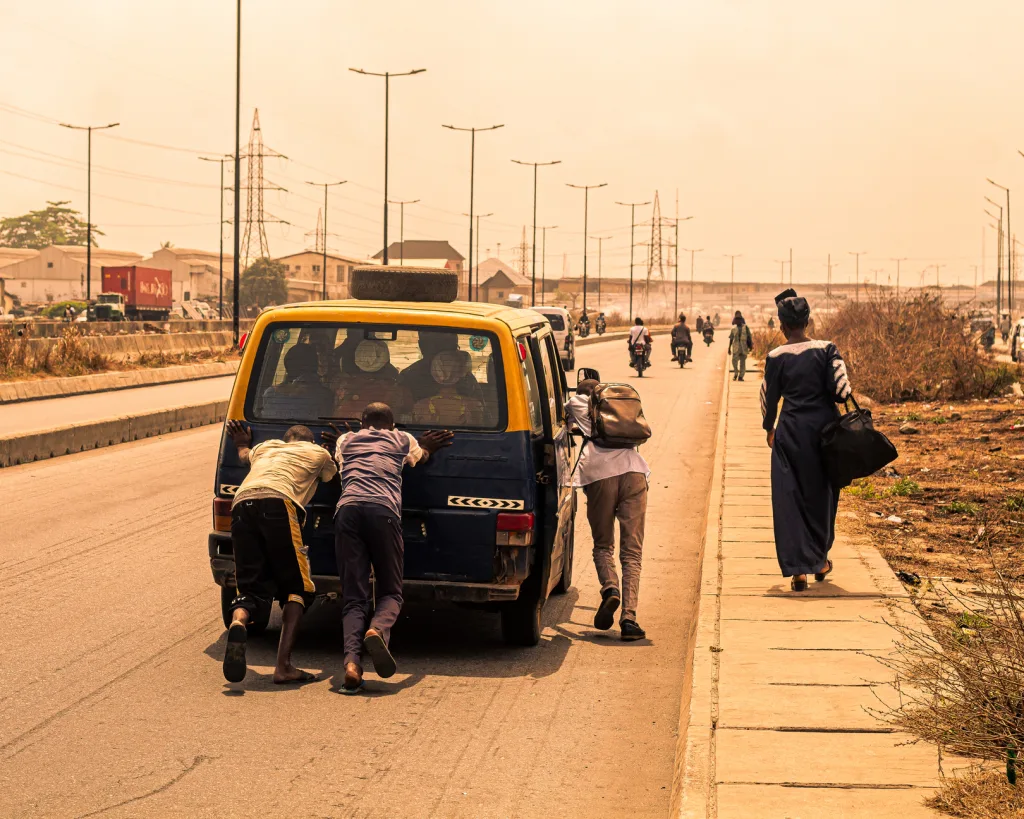


Levithegrapher, City of Dreamers
Alright, that’s okay. Can you tell us about some projects or series you worked on that you are especially proud of?
Levi: The End Sars project. It gave me a lot of exposure as a photographer. At that point, I had some accommodation issues: the person I lived with said if I wanted to do photography, I had to leave the house. And that was the period EndSars started, so I would go there and sleep on the protest ground. As I was uploading the pictures, people were reacting and commenting and it gave me a level of validation that i was doing something right. I exhibited this project at the Abuja Photo Festival. I believe that moment was a big part of my journey and it gave me a level of exposure.
Another project that is dear to me is the one i’m currently working on in Lagos. I am not based in Lagos, but i come from time to time to take pictures for a project titled “City of Dreamers.” I plan to make it a book over time. It is a great thing to document because things are always changing. There is a bridge around TradeFair that I captured last year, and I came back again this year and it has been demolished. So, I try to document these things so that the next generation can know what existed and how to build off of it, even if it does not exist anymore.
What device did you start with, and what do you use today?
Levi: I started with the Tecno Spark 2. Now I use the FujiFilm XT30ii
Levi’s City of Dreams preserves Lagos in her rawest form. The photographer throws himself at the city to see beneath the glossy perception most metropolitan cities carry. Levi sees a popcorn seller catching his breath on the pavement at Eko Bridge and stands in the middle of the road to take a picture. Even when it rains, Levi braves the torrent to show how Lagos scurries for shade in such situations. He captures two young people exchanging blows on the mainland part of Lagos, he leaves the story unfinished because that is not the first or last set of people to fight— it is the moment that matters to him. Yes, it happened… it happens, we can get to the why’s later. What is important is that Lagos’ lifestyle is captured for what it is, and Levi succeeds at this as a fly on the wall whilst the city continues in its chaotic inertia.
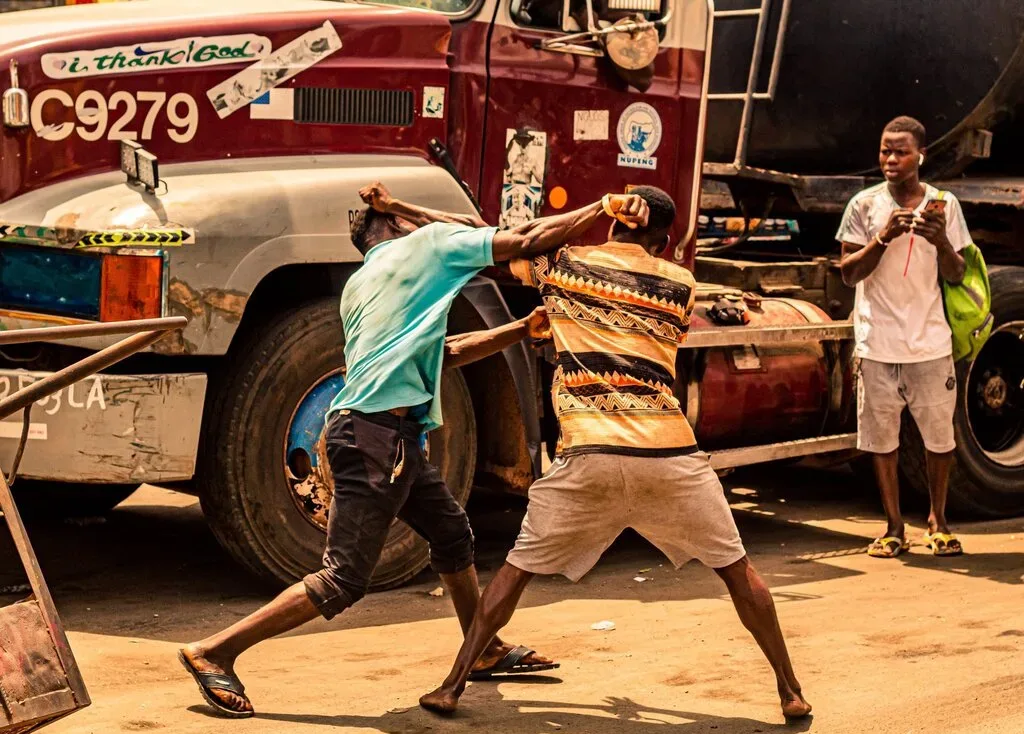


Levithegrapher, City of Dreamers
What is street photography to you?
Levi: Street photography is the documentation of people, places and faces. There is a slogan I use on social media, ‘Documenting today, for tomorrow’, I’m not doing this thing for you, but for the children. I see old pictures of Lagos and I am blown away, it is always a learning experience. So I think street documentaries, or street photography as my own way of archiving today’s reality for the future generation to look at.
What is your one rule of street photography?
Levi: Story before composition. The story has to be there before I even consider the aesthetics. There was a drone shot I posted of a train a couple of days back, I wanted to get the danfo bus and the train in the same shot. I did some reconnaissance to know when the train would pass, where the sunset would face. So all these go into me planning my execution. But the story is very apparent, me capturing the Danfo, as the old Lagos which would be competing with a new Metropolis that people will now have to accept. Definitely, one has to have the story before thinking of how to frame the shot.
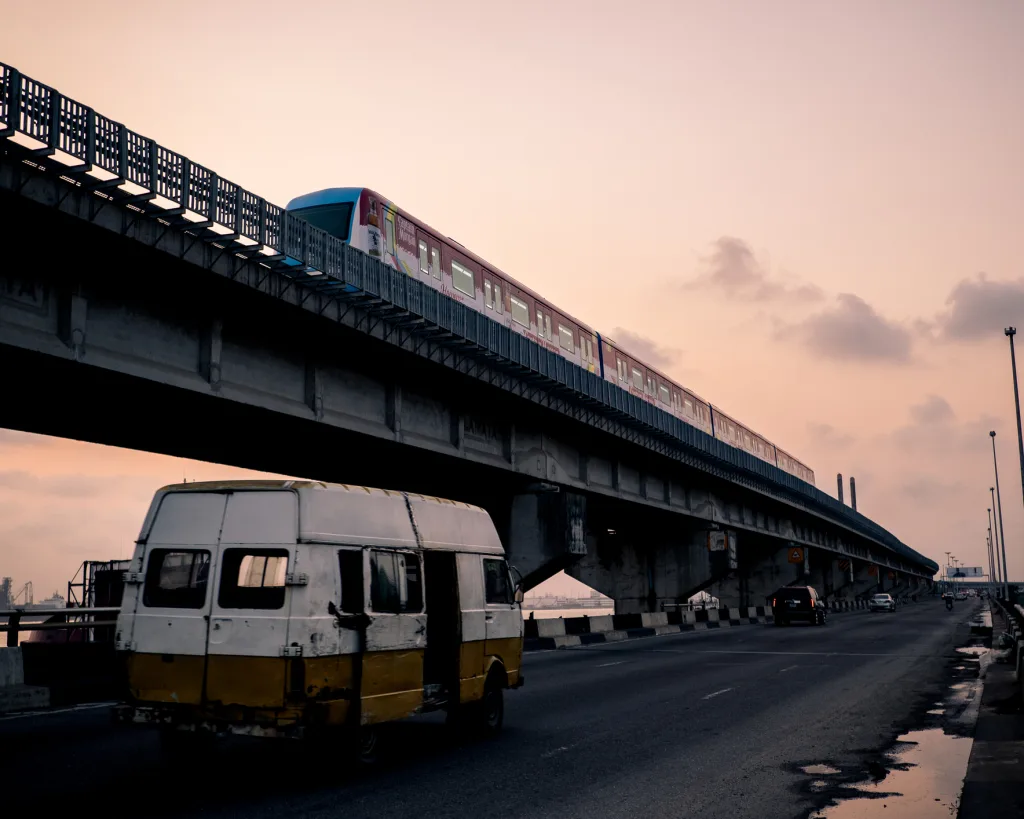


Levithegrapher, City of Dreamers
What interesting experience have you had that sticks with you?
Levi: It is always something interesting. Sometimes, I go into the street with my camera and don’t even shoot, I just talk to the people. I don’t think I can remember any for now.
Is your art political?
Levi: I won’t say it is political or not, but what I am trying to do is to give a voice to people that are not heard. Sometimes people will say I am focusing on the negatives, but I feel like it has to be said. I am trying to tell the world ‘this is what the youths are passing through.’
What do you have to say about the current landscape of art and financial freedom through creating?
Levi: I am a drone pilot, I also cover events— for now. I don’t reject jobs, I do anything that comes my way. People I look up to like AmazingKlef actually diversify. It is important to do more and expand your capacity. When I started photography, I didn’t have a drone, but I’m trying to branch out. I am always thinking of what to do so i don’t have to be desperate. When you’re not desperate, you can build a good brand, people respect you more. A big misconception that people have is that their favorite photographers only do one thing. But that is untrue, they might only get 5 jobs in a year This path is not something that fetches quick money. So you need to diversify and learn to commercialize your craft and skills. The higher you go, the more value you accumulate and the more you can leverage on your influence to bring ideas to life. If you are hungry and doing this thing, the passion will fade. You will get tired of this.
What do you have in plan for your next exhibition?
Levi: I think I will work on these images and have an open-space exhibition where everyday people can engage with the works. Maybe something in the street that will make them understand the importance of documenting these projects.
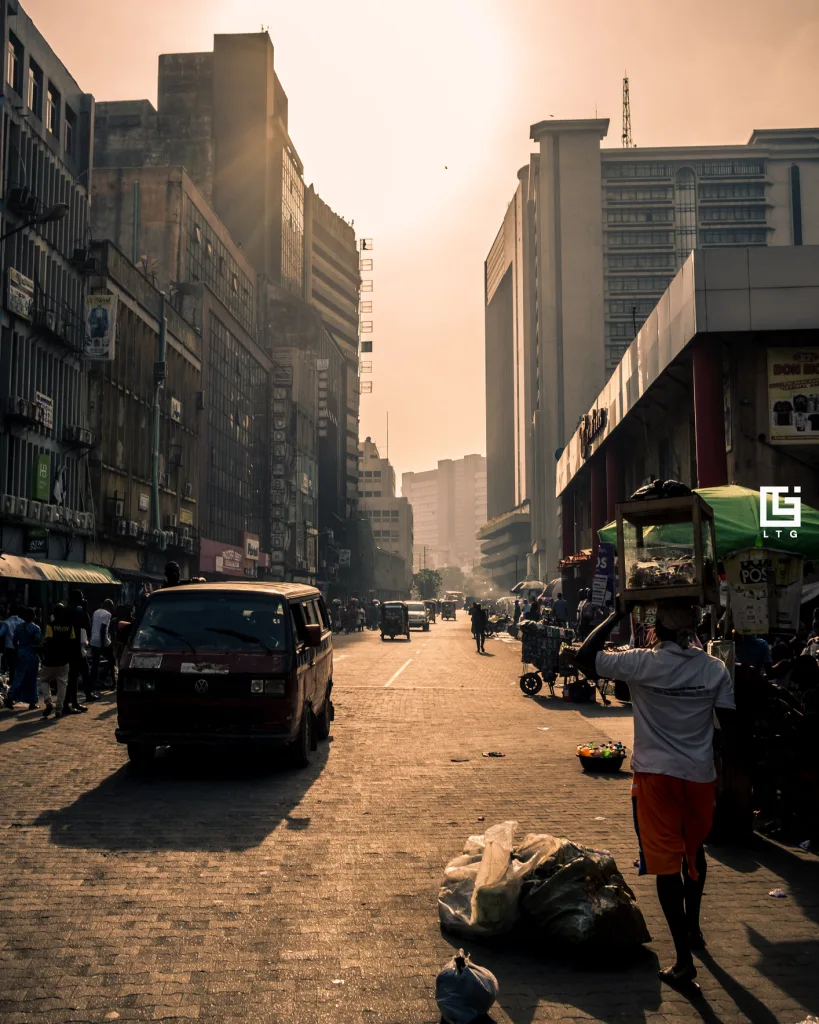


Levithegrapher, City of Dreamers
Read more reviews and pieces about culture and art on The Blotted. Follow us on Twitter and Instagram @onetinyblot


NO COMMENTS